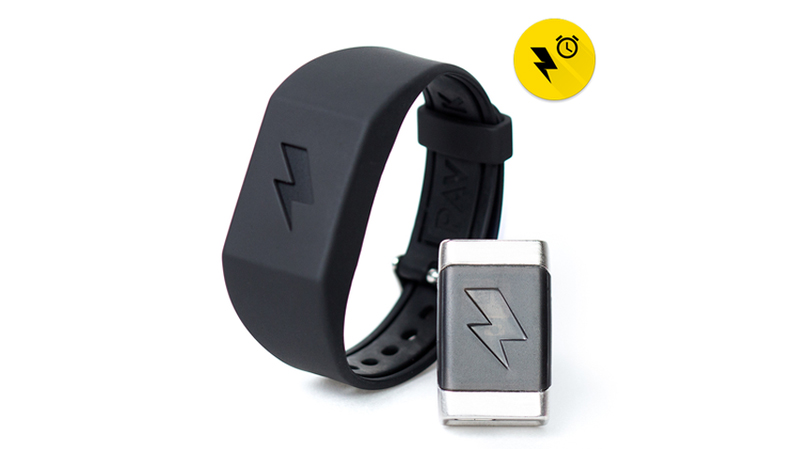This bracelet wants to shock you awake and we're not sure why either
Shocking measures to get you out of bed

If you find even multiple alarms isn't enough to get you out of bed, then a new product called the 'Shock Clock' might be for you.
Simply strap Pavlok's device to your wrist, connect it to a phone via Bluetooth, and set an alarm to wake yourself up with a painful electric shock.
The device also supports using vibration and sound to wake you up if you're in a less masochistic mood one morning.
Pavlov's (shock) dogs
In theory, the device goes beyond simply getting you out of bed and will condition you to wake up earlier of your own accord. It claims to achieve this through Pavlovian conditioning, which is the process by which your brain subconsciously associates certain actions with either a positive or negative outcome.
The idea is that by associating not getting out of bed with a painful electric shock then the Shock Clock will condition you to wake up naturally when you want to rather than constantly hitting the snooze button on your alarm.
Of course Pavlov famously conditioned his dogs using positive reinforcement rather than punishment, but don't let that stop you from electrifying yourself in the morning.
We've had a chance to try out the Shock Clock ourselves, and the shock is certainly powerful enough to wake you up. More importantly though we'd question whether someone with the self-control to wear the device would lack the self-control to get out of bed.
Get the best Black Friday deals direct to your inbox, plus news, reviews, and more.
Sign up to be the first to know about unmissable Black Friday deals on top tech, plus get all your favorite TechRadar content.
The alarm app allows you to set the shock at a variety of intensities from 10 - 100%. If you're curious, that ranges roughly from "slight tingle" to "SCREW THE PERSON THAT INVENTED THIS BASTARD DEVICE".
The Shock Clock is currently available on IndieGoGo and is currently funded at $183,000 at the time of writing, with 5 days of the campaign left to go. The initial funding target was just $1,000.
Watch the video below for the techradar team's reaction to the device.
Jon Porter is the ex-Home Technology Writer for TechRadar. He has also previously written for Practical Photoshop, Trusted Reviews, Inside Higher Ed, Al Bawaba, Gizmodo UK, Genetic Literacy Project, Via Satellite, Real Homes and Plant Services Magazine, and you can now find him writing for The Verge.
